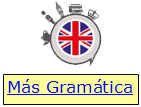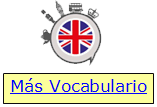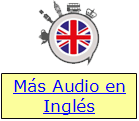|
Grammar: Probability Adverbs
We use adverbials of probability to show how certain we are about
something.
Here are some examples:
certainly – definitely – maybe – possibly
clearly – obviously – perhaps – probably
Many adverbs end with -ly (but not all adverbs)
“We’ll probably go out tonight.” (but not definitely) – more than 50%
chance.
“Perhaps we’ll go out tonight.”
Maybe and perhaps usually come at the beginning of the clause.
Perhaps can go at the end of the sentence, but this is more common in
spoken English:
“We’ll go out tonight, perhaps.”
Other adverbs of possibility usually
come in front of the main verb:
“Craig certainly knows how to make a good cup of coffee.”
“Reza and Craig will possibly become famous because of this podcast.”
With the verb ‘to be’, the adverb goes
after, not before:
“Craig is certainly one of the best English teachers I’ve ever known.”
This is the same with adverbs of frequency:
“Reza is often asleep at 3 o’clock in the afternoon.”
“Reza was obviously very happy to get back to Valencia after the summer.”
With questions, the position is the
same:
“Will you definitely be paying for lunch tomorrow?”
Notice that probability adverbs go
after AM, IS, ARE, WAS, WERE:
"I am definitely getting hungry."
Vocabulary: In the Home – housework
to sweep – barrer
broom – escoba
mop – fregona
dust – polvo
to do the cleaning
vacuum cleaner – aspiradora
to hoover/to vacuum – pasar la aspiradora
to wash the dishes – fregar los platos (to wash up/to do the washing up)
Most things in the house we ‘do’ – do the washing, do the cleaning, do
the washing up, do the vacuuming, do the shopping do the dishes etc. But
the bed we make “to make the bed”.
Craig hates doing the ironing. to iron – planchar
Craig likes eating, but he doesn’t like cooking.
Reza likes cooking. He’s a good cook.
dishwasher – lavavajillas/lavaplatos
washing machine – lavadora
rubber gloves – guantes de goma
a feather duster – plumero
Pronunciation:
rice (arroz) / raise (levantar) / race (carrera – noun or correr – verb)
Rice – /ai/ – my, buy, tie
Raise/race – /ei/ – day, say, Craig
Raise has vibration in the throat.
Race comes only from the mouth.
Rise does not have an object. It’s intransitive: The sun rises.
Raise has an object. It’s transitive: To raise the table, to raise your
salary.
 *Dispones
de más
PODCAST en inglés publicados en los cuadernos anteriores *Dispones
de más
PODCAST en inglés publicados en los cuadernos anteriores
a los que puedes acceder directamente así como al índice de su
contenido. |



 *Dispones
de más
*Dispones
de más


